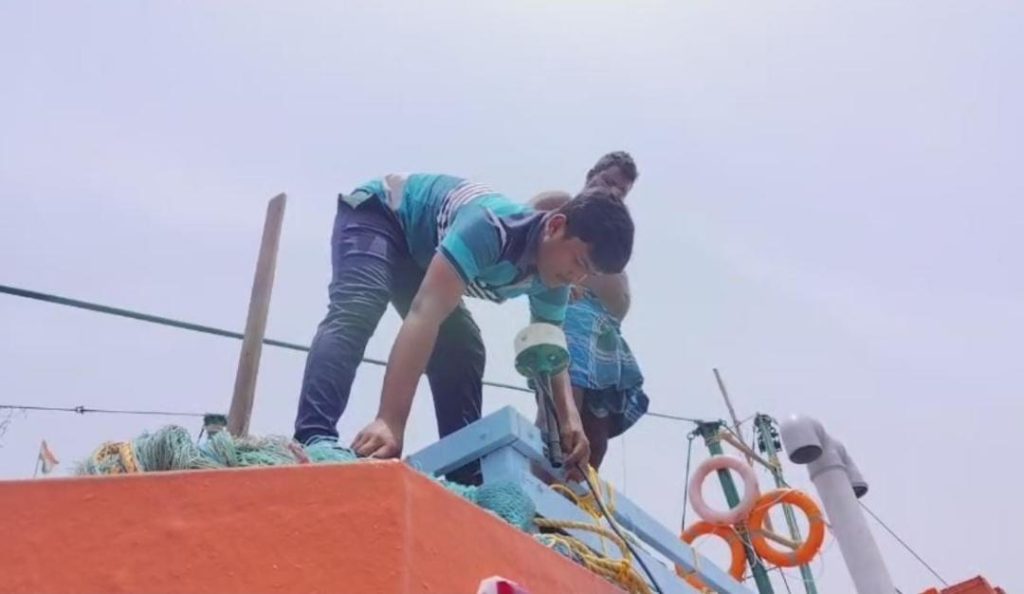
ISRO’s Transponder Technology Protecting West Bengal’s Fishermen
The Indian Space Research Organisation (ISRO) has made a significant contribution to ensuring the safety of West Bengal’s fishermen by developing a cutting-edge technology called the Satellite-Based Maritime Safety Assistant System, or Transponder. This innovative device is being installed in trawlers to enhance communication, location tracking, and emergency response in the treacherous waters of the Bay of Bengal. The transponder has already been installed in 300 trawlers, providing a lifeline for the fishermen who venture into these waters daily.
The Transponder technology is a satellite-based system that uses the Indian Regional Navigation Satellite System (IRNSS) to track the location of trawlers and provide real-time information to the fishermen, as well as to the authorities in case of an emergency. The system consists of a transponder unit installed on the trawler, which sends and receives signals to and from the IRNSS satellite. This allows the trawler to be tracked in real-time, enabling the fishermen to stay in touch with their families and the authorities, and receive timely assistance in case of an emergency.
The installation of the transponder technology is a significant milestone in the effort to improve the safety of West Bengal’s fishermen. The state’s fishermen have long been vulnerable to the harsh conditions of the Bay of Bengal, where they face the risk of drowning, injuries, and even loss of life. The transponder technology provides them with a vital safety net, allowing them to stay in touch with their families and the authorities, and receive timely assistance in case of an emergency.
The impact of the transponder technology on the lives of West Bengal’s fishermen is already being felt. The technology has enabled the fishermen to stay in touch with their families more effectively, reducing the anxiety and worry that comes with venturing into the open sea. The transponder unit also provides the fishermen with critical information about the weather and sea conditions, allowing them to make informed decisions about their journey and return safely to shore.
The installation of the transponder technology has also reduced the time taken to respond to emergencies. In the past, it could take hours or even days for rescue teams to reach the scene of an accident. With the transponder technology, rescue teams can now be alerted quickly and respond rapidly to emergencies, reducing the risk of loss of life and injury.
The success of the transponder technology is a testament to the effectiveness of public-private partnerships. The project was implemented in partnership with the West Bengal government, the Indian Navy, and the ISRO. The collaboration has been instrumental in ensuring the success of the project, and has provided a model for future collaborations between government, industry, and academia.
The installation of the transponder technology is also expected to have a positive impact on the state’s economy. The fishing industry is a significant contributor to West Bengal’s economy, and the improved safety of the fishermen is likely to increase their productivity and efficiency. This, in turn, is expected to lead to increased revenues for the state and improved livelihoods for the fishermen and their families.
In conclusion, the ISRO’s Transponder technology has brought a safety revolution to West Bengal’s fishermen. The technology has provided a vital safety net for the fishermen, enabling them to stay in touch with their families and the authorities, and receive timely assistance in case of an emergency. The impact of the technology is already being felt, and it is expected to have a positive impact on the state’s economy. The project is a testament to the effectiveness of public-private partnerships, and provides a model for future collaborations between government, industry, and academia.
Source: https://thecsrjournal.in/isro-transponder-technology-brings-safety-revolution-west-bengal-fishermen/






